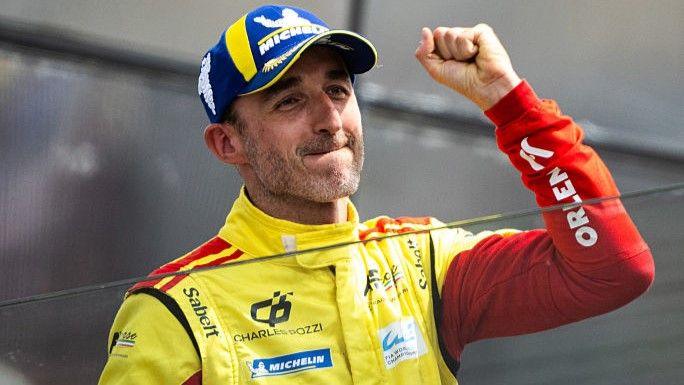The recent victory of Robert Kubica at the legendary Le Mans 24 Hours has put to rest any injury-related doubts about his capabilities behind the wheel. This remarkable win at the age of 40 stands as a testament to his resilience, especially in light of the traumatic experiences he has endured since a devastating rally crash in 2007. That incident left him with a severely injured right arm and had initially derailed what many believed could have been a storied Formula 1 career, possibly with multiple championships to his name.
The Le Mans race is notorious for its grueling nature, enduring through the night and reaching speeds exceeding 200 mph. Maintaining such concentration levels during an event that challenges even the top drivers in the world is no small feat. Yet Kubica managed to not only compete but also succeed in one of motorsport’s most demanding challenges. His victory under these conditions is not just a personal achievement but also a celebration of his unwavering spirit and sheer determination.
In Kubica’s words, he stated, “I don’t think my limitations are limiting behind the wheel. I think if someone had doubts in the past I showed those doubts should not be in place.” This reflects not only his confidence but also speaks volumes about the hard work he has invested to overcome his past trauma. He shared that many speculated whether he could return to the sport after his accident due to visible evidence of his injuries, yet here he stands, triumphantly proving them wrong.
Kubica spent a substantial amount of time during the race behind the wheel—over three and a half hours across five stints—requiring an extraordinary physical endurance to consume around 12-13,000 calories just to keep his focus sharp. After such a mentally and physically exhausting experience, he humorously noted how he only managed “two hours’ sleep.”
His victory signifies more than just a win; it symbolically reestablishes his place within racing history, alongside a valorous crew comprised of Chinese racer Ye Yifei and British driver Phil Hanson. Kubica’s team, racing the AF Corse car, showed that they could outperform the heavily-favored works Ferrari cars, which had dominated the event in previous years. The yellow liveried AF Corse car pays homage to Ferrari’s heritage, adding depth to their achievement.
Ye Yifei, who made history as the first Chinese driver to win the Le Mans, praised Kubica, referring to him not only as a teammate but fondly calling him the “technical director” for his extensive knowledge. This camaraderie united the team, further motivating them to succeed against established rivals.
Kubica himself has expressed that racing isn’t merely a hobby; it is his life’s passion and purpose. He has stated that the act of driving served as a powerful form of therapy during his recovery, emphasizing that though he may have physical limitations, it does not hinder his ability to perform on a racetrack. “For me, racing is everything,” he stated, and his passion continues to fuel him in an industry filled with both challenges and opportunities for success.
Before his return to Formula 1 full-time in 2019, Kubica faced scrutiny from those skeptical about his ability to drive competitively given the physical constraints imposed by his injuries. He acknowledged internal struggles with self-doubt but ultimately decided that the prospect of ending his racing career was too daunting.
Now, with the monumental Le Mans win, Kubica stands tall not just as a driver but as a symbol of perseverance against all odds—an inspiration to many in the motorsport community and beyond. The fire that propels him through the challenging circuits of racing still burns brightly within him; thus, it seems that Kubica’s journey is far from over.



